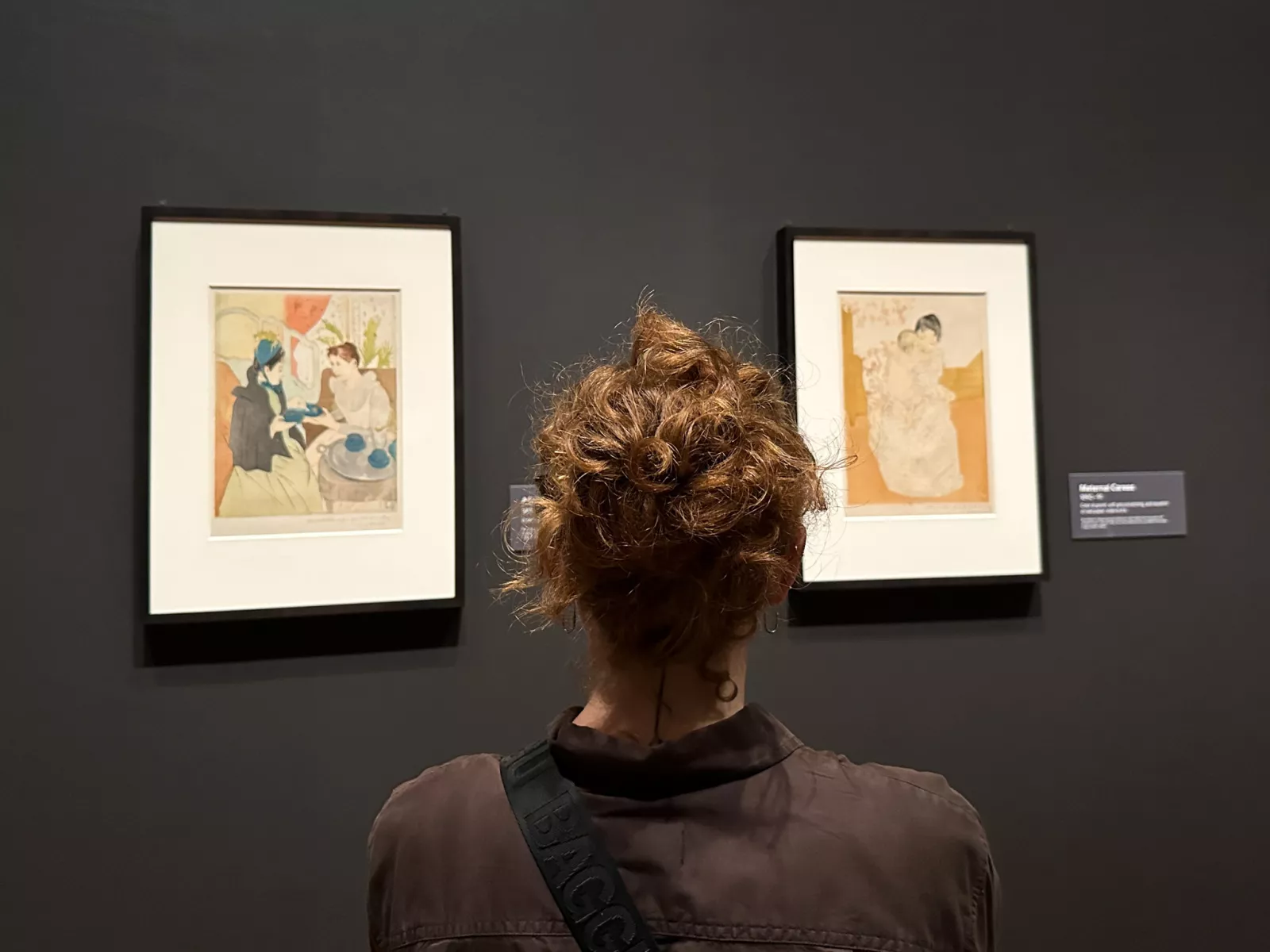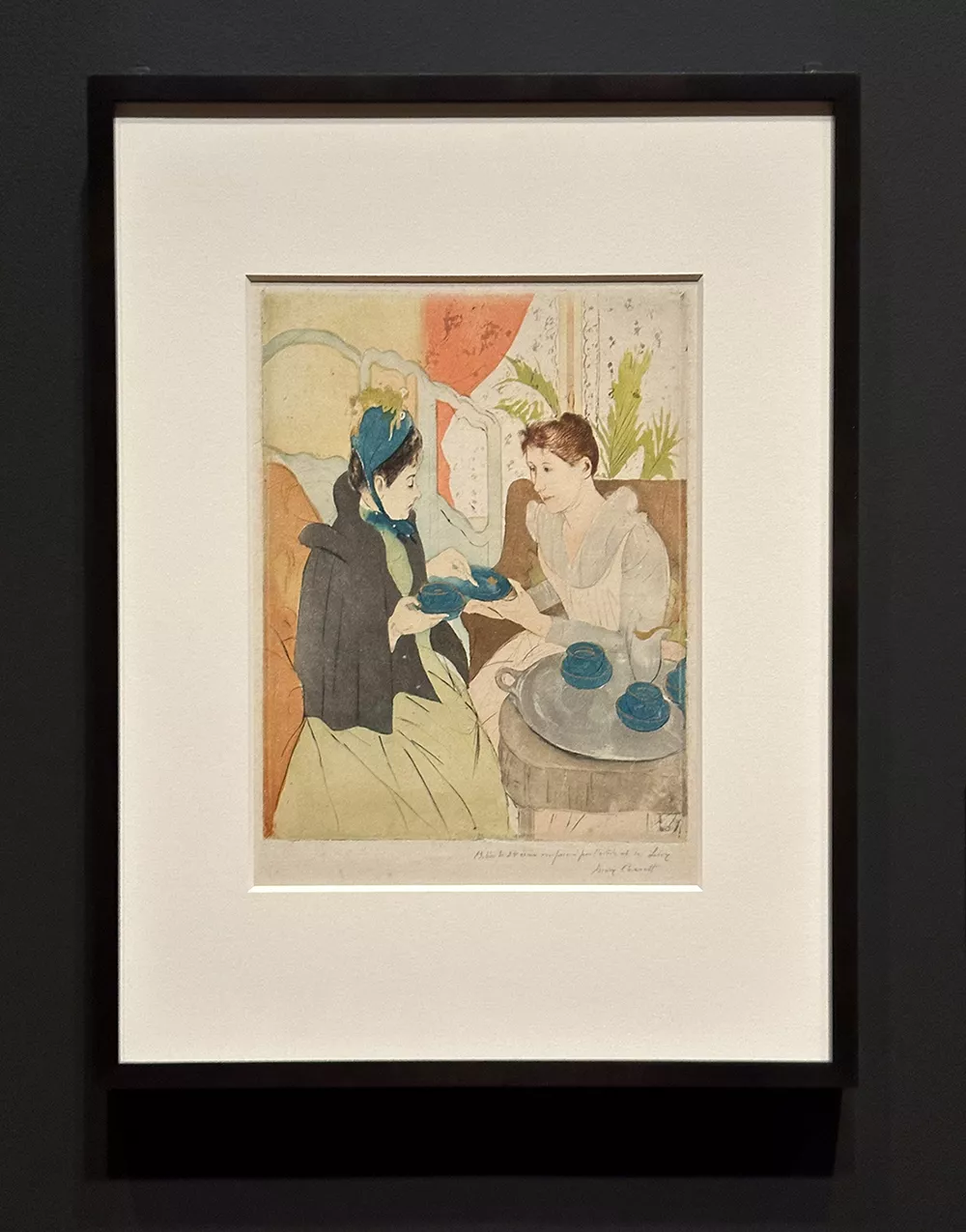The Lowdown on Art Loans
Art, artifacts, and books at Bryn Mawr are sometimes loaned to museums, shining a spotlight on the College’s collections. But these treasures require special care.
Maybe you were at the Philadelphia Museum of Art earlier this year admiring the exhibition “Mary Cassatt at Work” when a familiar name caught your eye. Those two prints were loaned by Bryn Mawr College!
There are more than 50,000 pieces of art or artifacts in Special Collections, and even more books and manuscripts. Much of the collection is safely stored away but from time to time, dating back to the early 1900s, items have been loaned out for exhibit.
“Our primary audience is our college campus,” says Seymour Adelman Director of Special Collections Janelle Rebel. “This opens it up to a much, much wider network.”
When assembling exhibitions, curators consult “catalogues raisonnés,” publications that list the known artworks by an individual artist. The College’s digital databases are also a good resource, and those records show when and where pieces have previously been exhibited—for instance, the Cassatts went to Yokohama, Japan, in 2016.
The Cassatt prints hailed from the collection of Professor Lucy Martin Donnelly and were given to the College in 1949 by Edith Finch, Class of 1922 and lecturer in English. Research into how the prints came to be acquired by the women, who shared a home, is still ongoing.
Sometimes a work of art from the College gets published in the exhibition catalog, which is helpful for future researchers as well as a point of pride.
“When an object is loaned for exhibit, it places the College in the company of major museums, often on a shared wall,” says Carrie Robbins, curator and academic liaison for art and artifacts.
“Artworks on loan serve as ambassadors for the College and the richness of our otherwise less visible collections.”
Occasionally, curators or researchers come to campus to comb through the archives.
“We loaned women’s suffrage material to the Brandywine Museum a couple of years ago, and the curator said, ‘I know you have a massive amount of suffrage material; can I come and look at it?’” recalls Marianne Hansen, curator and academic liaison for rare books and manuscripts. “And she came and worked through the boxes.”
Pieces from the College have been loaned to the Art Institute of Chicago, the Stockholm National Museum, the Metropolitan Museum of Art, and other major museums. Special Collections has established relationships with museums such as the Philadelphia Museum of Art, Winterthur (which does art conservation research and treatment for the College), and Brandywine.
Still, great care must be taken when works of art are loaned out. The team does a risk analysis of things like the structure and security of the building, as well as how the piece will be displayed.
Condition reports are filled out at every stage of the journey. Collections Manager for Art and Artifact Collections Marianne Weldon carries a UV meter to check for UV-protective glass. Some pieces, including the Cassatt prints, must be kept in dark storage for several years between showings.
In the event of air travel, one of the staff members goes with the crated piece; a particularly watchful eye must be kept on the airport forklifts.
“Everyone thinks it’s glamorous, and it isn’t,” Weldon says. “It’s serious work.”
While Special Collections requires the borrower to pay for transportation and other costs, such as an on-site conservator to ensure the artwork is kept in pristine condition, they do not charge for the loan itself.
Staff members still discover works in the collection that surprise and delight—Rebel's latest obsession is a hand-stenciled book of fashion designs by Sonia Delaunay. The book is one in an edition of only 150.
“Every new thing you get to work with is the exciting thing,” Weldon says, “and we don’t see everything we have until there’s a reason.”
See the digital collections of books, art, and artifacts at the College
Published on: 10/22/2024

